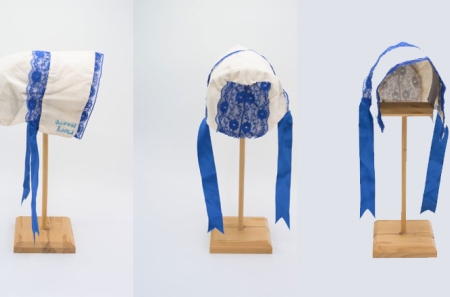
DRI and Reuse of Research Data
14 December 2021The Digital Repository of Ireland (DRI) has recently added new citation functionality to the Repository to facilitate more efficient referencing to arts, humanities, and social sciences digital data in academic research.
Researchers now have the option of using our citation tool to format references to digital objects on the Repository according to referencing styles most commonly used in the field of Humanities and Social Sciences (HSS), including American Psychological Association style (APA), Chicago Manual of Style, and Modern Language Association (MLA). Researchers also still have the option of using the DRI citation style, which was developed when DRI launched in 2015 and follows the best practice recommendations of the CODATA-ICSTI Task Group on Data Citation Standards and Practices, the UK Data Archive. More information on the DRI citation style can be found in our DRI Citation Policy.
Referencing digital data presents challenges as there are few established norms and practices on attributing credit using bibliographic references to digital data. By providing Repository users and researchers with the option of automatically formatting references to digital data according to popular HSS referencing styles, we hope to make the citation process easier for researchers and to reinforce the benefits to researchers, the research community, and data creators of opening up data for the greatest discoverability and reuse. DRI is committed to supporting researchers, in particular those that wish to work with archival materials and digital data. Integrating increased data citation support into the Repository’s citation tools is part of this support.
We have developed several initiatives throughout the year to support researchers working with archival material in recognition of the fact that access to brick-and-mortar archives has been limited throughout 2020 and 2021 due to COVID-19 restrictions, creating challenges for humanities researchers. In spring 2021, DRI ran a three-part public lecture series called ‘Using Digital Archives for Academic Research’ to showcase the rich research resources available in DRI and the wider collections of our member institutions. The three webinars in the series covered the practicalities of using digital archives for academic research in three key areas: Historical, Geographical and Archeological, and Social Sciences research. You can find recordings in the DRI events collection and via the DARIAH-Campus hosting platform. A new publication – ‘Using Digital Archives for Academic Research’ – was developed in collaboration with our members to support the series and to aid researchers in navigating digital collections. We look forward to continuing to serve the Irish research and cultural heritage sectors in 2022 by supporting best practices in digital preservation, the use of digital resources in research, FAIR data sharing, and open scholarly communication.
Photo by Jason Goodman on Unsplash



